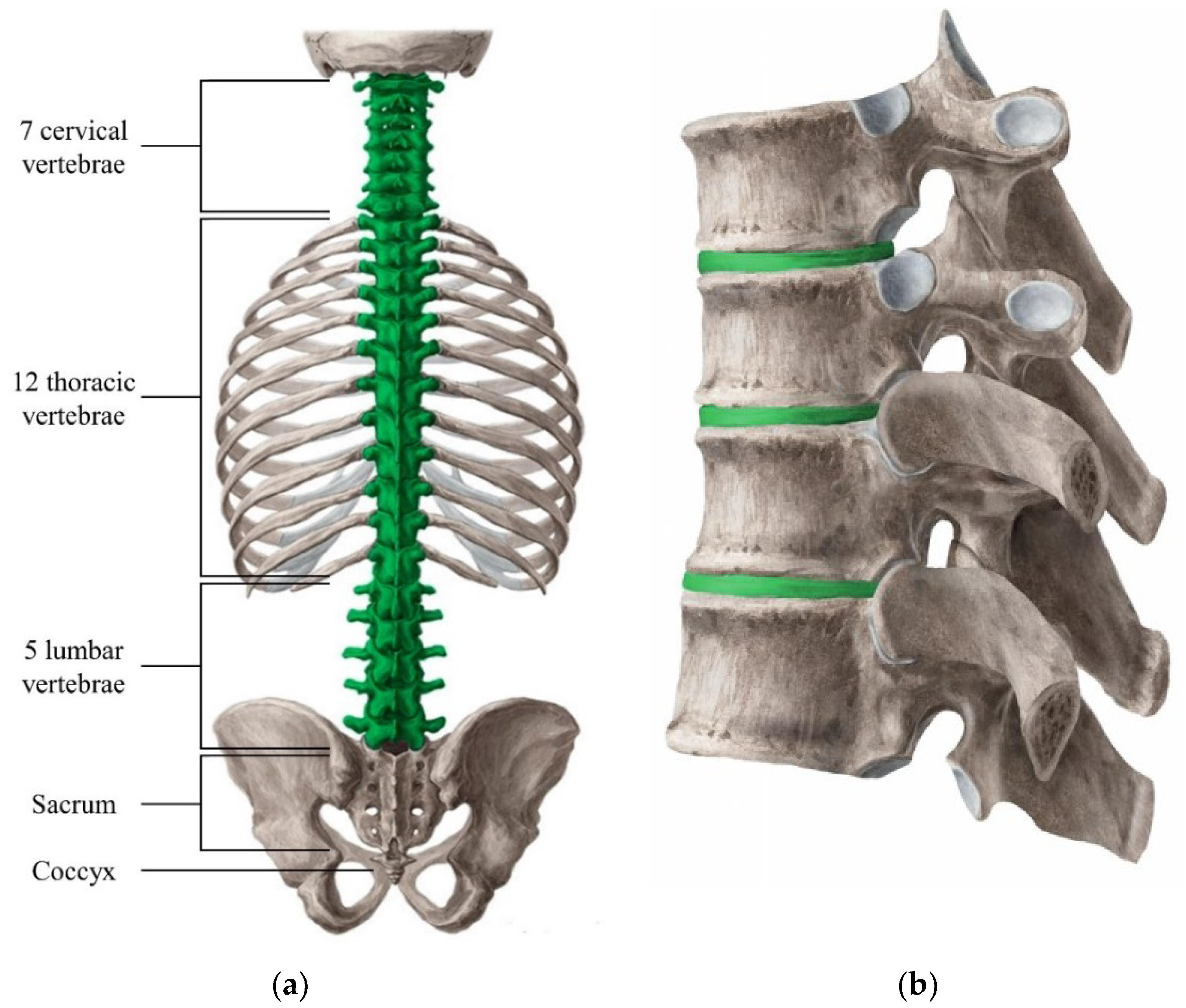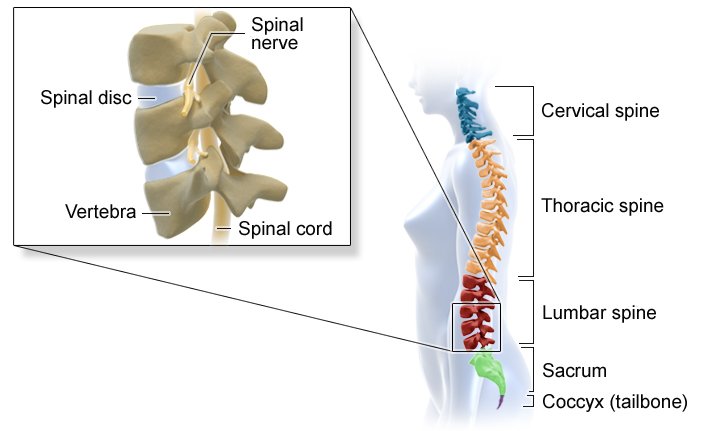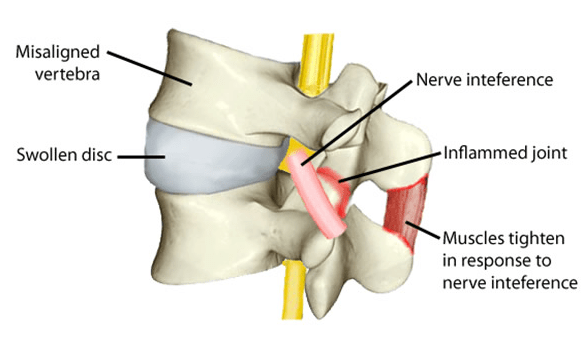When it comes to health and wellness, many people focus on diet, exercise, and medication as the primary tools to improve digestion, breathing, and heart function. While these are undeniably important, an often-overlooked factor that can profoundly impact these critical bodily systems is the health of your spine.
Your spine is far more than just the central support for your body; it is the protective channel for your spinal cord, which is a crucial part of your nervous system. The nervous system acts as the body’s communication network, sending signals between your brain and every organ. When your spine is misaligned or not functioning properly, it can interfere with these nerve signals, affecting vital processes such as digestion, breathing, and heart health.
In this comprehensive article, we will delve deep into the intricate relationship between spinal health and your body’s essential functions. We’ll explore how the spine affects your digestion, breathing, and cardiovascular system, discuss the symptoms of spinal misalignment, and explain how chiropractic care can be a natural solution to many of these issues.

The Vital Connection: Spine and Nervous System
Your spine houses the spinal cord, a critical part of the central nervous system that connects the brain with the rest of the body. The spinal cord is protected by the vertebrae—individual bones stacked one on top of another—but these vertebrae need to be properly aligned to prevent irritation or compression of the spinal nerves.
The nervous system controls every organ and function, including your digestive tract, lungs, and heart. When signals from your brain to these organs are disrupted because of spinal misalignment (called vertebral subluxations), the organs may not function optimally.
Different parts of the spine correspond to different areas of the body:
-
Cervical Spine (Neck area): Controls the head, neck, diaphragm (important for breathing), and upper limbs.
-
Thoracic Spine (Mid-back): Corresponds to many digestive organs, lungs, and the heart.
-
Lumbar Spine (Lower back): Influences the lower digestive system, kidneys, and lower limbs.
Misalignment in any of these regions can impair nerve communication, resulting in symptoms related to the organs served by those nerves.
Spinal Misalignment and Digestion: What’s the Connection?

Your digestive system relies heavily on precise nerve signaling for proper function. This includes muscle contractions that move food along the digestive tract (peristalsis), secretion of digestive enzymes, and blood flow regulation.
The thoracic spine plays a particularly important role here. Nerves exiting the thoracic vertebrae supply the stomach, liver, pancreas, intestines, and other digestive organs. If these vertebrae are misaligned, the nerves may become compressed or irritated, leading to a range of digestive problems.
Common digestive issues linked to spinal misalignment:
-
Acid reflux or GERD: Nerve interference can affect the lower esophageal sphincter, allowing stomach acid to travel back up.
-
Irritable bowel syndrome (IBS): Disrupted nerve signals can alter bowel motility, causing diarrhea, constipation, or alternating symptoms.
-
Constipation or diarrhea: Nerve dysfunction can slow or speed up intestinal transit time.
-
Bloating and gas: Improper digestive enzyme secretion can lead to poor digestion and fermentation of food.
-
Poor nutrient absorption: Reduced blood flow or nerve signaling to the intestines can affect how nutrients are absorbed.
The role of the Vagus nerve
The Vagus nerve is one of the most important nerves controlling digestion, originating from the brainstem and passing through the cervical (neck) and upper thoracic (upper back) regions of the spine. This nerve is a critical part of the parasympathetic nervous system, which oversees the “rest and digest” functions of the body. It helps regulate essential digestive processes, including the production of stomach acid, movement of food through the gastrointestinal tract (motility), and the secretion of digestive enzymes.
When the spine is properly aligned, the Vagus nerve can send clear and efficient signals between the brain and digestive organs, allowing digestion to proceed smoothly. However, spinal misalignments, or subluxations, especially in the neck and upper back, can irritate or compress the Vagus nerve. This interference can disrupt the nerve’s communication, leading to reduced digestive efficiency and common symptoms such as nausea, acid reflux, indigestion, bloating, and discomfort.
Chronic nerve irritation may also slow the digestive process, causing food to stay longer in the stomach and intestines, which can worsen symptoms and impact nutrient absorption. By maintaining good spinal health and seeking chiropractic care when needed, you can support the proper function of the Vagus nerve, promote better digestion, and improve overall gut health and well-being.
How Your Spine Influences Breathing

Breathing is an automatic but vital function controlled by the brainstem and regulated through the nervous system, specifically nerves arising from the cervical spine and upper thoracic spine.
The phrenic nerve, which controls the diaphragm (the primary muscle responsible for breathing), originates from the cervical spinal nerves C3 to C5. If these nerves are compressed or irritated due to poor spinal alignment, the diaphragm may not work properly, leading to shallow or inefficient breathing.
How spinal health affects breathing:
-
Restricted lung expansion: Misalignment can cause poor posture, such as forward head posture and rounded shoulders, which limit the ability of the chest to expand fully during inhalation.
-
Shallow breathing: Poor nerve function can lead to less diaphragmatic breathing, causing you to rely more on accessory muscles, increasing fatigue.
-
Increased anxiety and stress: Shallow breathing reduces oxygen intake, triggering stress responses that can worsen anxiety and fatigue.
-
Reduced oxygen delivery: Less oxygen in the bloodstream means your organs, muscles, and brain receive less fuel, contributing to low energy levels and poor performance.
Proper spinal alignment supports healthy nerve function and helps maintain good posture, allowing for efficient breathing mechanics and better oxygenation.
The Spine and Heart Health: An Often Overlooked Link
The heart’s function is controlled by the autonomic nervous system, which includes the sympathetic and parasympathetic branches. The sympathetic nervous system triggers the “fight or flight” response, increasing heart rate and blood pressure during stress or danger. In contrast, the parasympathetic nervous system promotes the “rest and digest” state, slowing the heart rate and aiding relaxation. These signals travel through the spinal cord, connecting the brain to the heart and blood vessels. Proper spinal alignment ensures smooth communication within this system, helping maintain healthy heart function and balanced circulation throughout the body.
Misalignments in the upper thoracic spine can disrupt autonomic nerve pathways, potentially leading to:
-
Elevated blood pressure: Increased sympathetic nervous activity can cause vessels to constrict, raising blood pressure.
-
Irregular heart rhythms: Nerve interference may affect the heart’s electrical system, contributing to arrhythmias.
-
Poor circulation: Impaired nerve function can reduce blood flow to extremities, leading to cold hands and feet.
-
Heightened stress response: Chronic nerve irritation can maintain a constant “fight or flight” state, which is detrimental to cardiovascular health.
Chiropractic adjustments may help restore nerve balance, reduce sympathetic overactivity, and support heart health.
Recognizing Symptoms of Spinal Impact on Organ Health
Spinal misalignments, or vertebral subluxations, often go unnoticed because they don’t always cause obvious back pain or stiffness. However, these misalignments can interfere with nerve function, leading to a variety of symptoms that seem unrelated to the spine. This nerve interference can disrupt communication between the brain and body, causing issues like headaches, digestive problems, fatigue, mood changes, or even weakened immunity. Because these symptoms may not immediately suggest a spinal problem, many people overlook the role their spine plays in overall health. Recognizing this connection is key to addressing hidden spinal issues early.
Watch for these signs:
-
Persistent digestive complaints: heartburn, bloating, constipation, or diarrhea
-
Difficulty taking deep breaths or feeling short of breath
-
Chest tightness, palpitations, or unexplained fatigue
-
Chronic headaches or neck pain
-
Poor posture with forward head or rounded shoulders
-
Low energy and general malaise despite a healthy lifestyle
If these symptoms sound familiar, a spinal health evaluation can identify whether your nervous system is being compromised.
Chiropractic Care: Restoring Balance to Your Spine and Body

Chiropractic care specializes in identifying and correcting spinal misalignments using gentle, precise adjustments. These adjustments realign the vertebrae, helping to relieve pressure on nerves that may be compressed or irritated. By restoring proper spinal alignment, chiropractic care improves the flow of nerve signals between the brain and the rest of the body. This enhanced communication supports better organ function, reduces pain and inflammation, and promotes overall health. Regular chiropractic treatments can help maintain spinal health, prevent future misalignments, and boost your body’s natural ability to heal and function optimally.
Benefits of chiropractic care for digestion, breathing, and heart health:
-
Improved nerve function: Spinal adjustments remove interference, helping nerves to send clear signals.
-
Reduced muscle tension and better posture: This improves lung capacity and breathing efficiency.
-
Enhanced blood circulation: Adjustments may help regulate autonomic nervous system activity, promoting healthier heart function.
-
Natural pain relief: Chiropractic care can reduce back pain, headaches, and stiffness.
-
Increased energy and vitality: Improved organ function and oxygenation lead to more sustained energy levels.
Many patients report feeling improvements in digestion, breathing, and cardiovascular symptoms within a few chiropractic sessions.
Supporting Your Spine and Organ Health With Lifestyle Changes

While chiropractic care can be pivotal in correcting spinal misalignments and improving nerve function, supporting your spine with healthy daily habits is equally important. Maintaining good posture, especially when sitting or using electronic devices, helps prevent unnecessary strain. Regular exercise, including stretching and strengthening routines, supports spinal stability and flexibility. Staying hydrated and eating a balanced diet rich in anti-inflammatory foods also promote disc and joint health. Additionally, investing in a supportive mattress and practicing relaxation techniques can reduce muscle tension and improve sleep quality. Together, these habits complement chiropractic care for optimal spinal health and overall well-being:
-
Maintain good posture: Regularly check your posture, especially during prolonged sitting or screen time. Use ergonomic chairs and standing desks if possible.
-
Practice deep breathing exercises: Techniques like diaphragmatic breathing improve lung function and reduce stress.
-
Stay hydrated: Water keeps your spinal discs healthy and supports overall organ function.
-
Eat a balanced diet: Fiber-rich foods support digestion; antioxidants help reduce inflammation.
-
Exercise regularly: Strengthening core muscles supports the spine, improves circulation, and aids digestion.
-
Manage stress: Meditation, yoga, or mindfulness reduce sympathetic nervous system overdrive, benefiting heart health.
-
Avoid prolonged inactivity: Movement keeps spinal joints mobile and nerves healthy.
Your spine is much more than a structural support for your body—it’s the critical pathway for your nervous system, which regulates every function including digestion, breathing, and heart health. Spinal misalignments can disrupt nerve signals, leading to a host of symptoms that often go unexplained or are treated only superficially.
By prioritizing spinal health through chiropractic care and healthy lifestyle choices, you can help your body function at its best. Improved nerve flow means better digestion, more efficient breathing, and a healthier heart—all foundational to a vibrant, energetic life.
If you’ve been struggling with digestive issues, shortness of breath, or heart-related symptoms despite your best efforts, it might be time to take a closer look at your spine.
Ready to take control of your health starting with your spine?
Visit Abundant Life Chiropractic to schedule a comprehensive spinal evaluation and begin your journey toward better digestion, breathing, and heart health.
Call us at (952)300-8338
Book online at https://abundantlifechiropractor.com/
Follow us on social media for wellness tips, special offers, and inspiring stories!
Frequently Asked Questions (FAQs)
Q: Can a chiropractor fix digestive problems?
A: Chiropractors don’t treat digestive diseases directly, but by correcting spinal misalignments that interfere with nerve function, they can improve digestion and alleviate related symptoms.
Q: Is chiropractic care safe for people with heart conditions?
A: Yes, chiropractic care is generally safe. However, if you have heart disease or other serious conditions, discuss with your primary care provider before starting chiropractic treatment.
Q: How quickly can I expect to see results?
A: Many patients notice improvements in symptoms like breathing or digestion within a few sessions, but the duration depends on the severity and chronicity of your condition.
Q: Are there exercises I can do at home to help my spine?
A: Yes, posture exercises, stretches, and breathing exercises can all support spinal health. Your chiropractor can provide personalized recommendations.
Q: Does poor posture affect my digestion and heart?
A: Yes, poor posture can compress your organs and nerves, negatively impacting digestion, breathing, and cardiovascular function.
The post Want Better Digestion, Breathing, and Heart Health? Start With Your Spine appeared first on Abundant Life Chiropractic Health Center.
from
https://abundantlifechiropractor.com/the-role-of-chiropractic-care-in-managing-chronic-pain-conditions-6/







 Have you ever felt constantly tired, sluggish, or like no amount of sleep is ever enough? If you go to bed early but still wake up groggy or unrefreshed, the issue might not be your sleep routine, mattress, or stress levels. Surprisingly, the root of the problem could be your spine.
Have you ever felt constantly tired, sluggish, or like no amount of sleep is ever enough? If you go to bed early but still wake up groggy or unrefreshed, the issue might not be your sleep routine, mattress, or stress levels. Surprisingly, the root of the problem could be your spine.

/assets/production/practices/45995a59de6e7a4d248e377c8d37b28af2ad07c2/images/2760476.jpg)